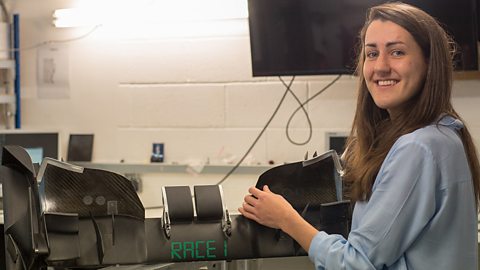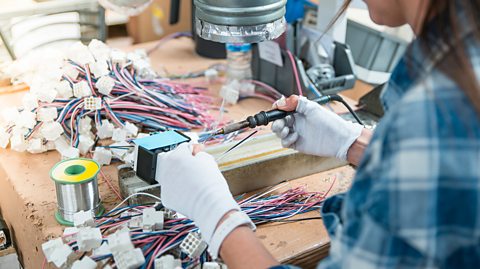Meet Adam, 30, from Sunderland. Find out about his job as an electrical technician apprentice at National Grid where he maintains equipment that enables huge subsea cables to share renewable energy between the UK and Europe.
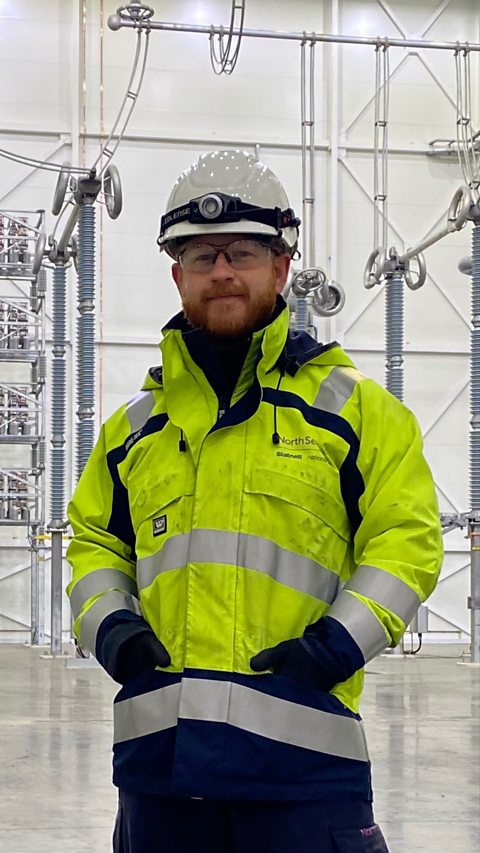
What does your apprenticeship programme involve?
IÔÇÖm completing an advanced apprenticeship to become a High-voltage direct current (HVDC) Electrical Technician, which usually takes three years. At the start of the programme, thereÔÇÖs a lot of general training to help you get to grips with working on different sites and the various equipment.
You also work towards your licences for operating big equipment like cherry pickers, complete safety training for inspections and working at height, and participate in workshops to develop your skills for using different tools and machinery.Then you start to look at electricity substations which help get more green energy onto the network ÔÇô we learn how the equipment functions, and how youÔÇÖd repair it. ItÔÇÖs very hands on and practical. Alongside this, I'm completing a City and Guilds Level 3 Diploma qualification in electrical power engineering in the first two years.
What do you do day to day?
My role as an HDVC assistant technician means supporting the operation of the North Sea Link interconnector, which has a key role to play in tackling climate change. Interconnectors are essentially big high voltage cables that run undersea between the UK and different parts of Europe and allow us to share excess renewable energy such as wind and hydropower. There are currently five of these, linking us to France, Belgium, Norway and the Netherlands.
Day to day, I help carry out planned and unplanned maintenance on the North Sea Link site in Blyth and make sure everything is running as it should be so that we can send excess renewable energy to Norway and receive excess hydropower back to the UK. Tasks include inspections, monitoring equipment and reacting to unexpected events impacting the equipment.

When I was finishing school, I wish someone had said to me, hang on a second, take a moment and look at other education and career routes too.
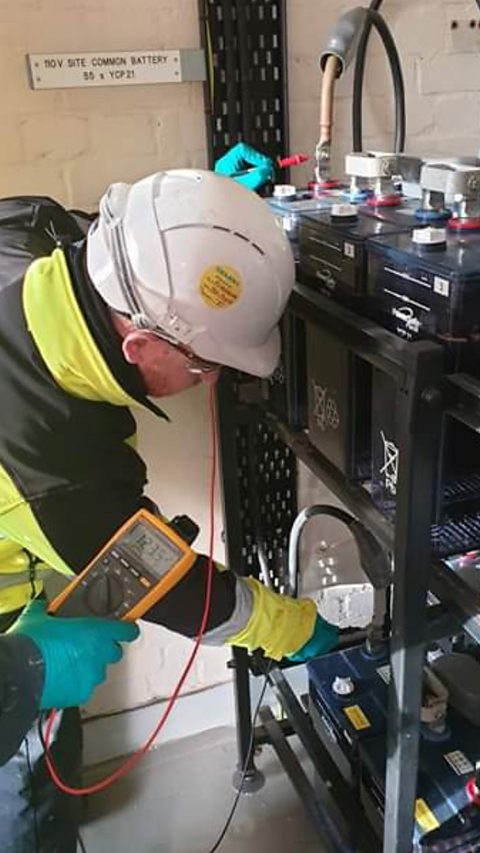
How did you know an apprenticeship was the right route for you?
When I finished school, most people were going to university. It was the most recommended route and for a lot of people, they chose that path because they didnÔÇÖt know what else to do. That was the case for me. When I was finishing school, I wish someone had said to me, hang on a second, take a moment and look at other education and career routes too.
Instead, I did a degree in sport exercise and development but soon after university found myself looking at other career options.I started an electrical course which took my interest and during that time I came across the apprenticeship programme IÔÇÖm on now. It felt like the right option for me as I had the right qualifications and it offered training in electrical engineering which I was keen to pursue.
What qualifications did you need?
To apply for a National Grid advanced apprenticeship, you need to have completed your GCSEs with at least five A-C grades including in Maths, English and Science. The application process includes an online application, video interview, a few short online games to test different skills and an assessment centre.

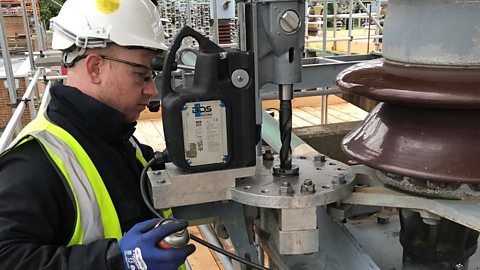
What do you love most about your job?
I love that thereÔÇÖs always something new to learn and that thereÔÇÖs so much opportunity to progress. You can see a career evolving and developing here. ThereÔÇÖs always something else to strive towards.
More broadly, I love that what IÔÇÖm doing is helping the UK tackle the biggest issue of our time and that weÔÇÖre working in collaboration with other countries to do this. When I went over to Norway to visit Kvilldal, which is the Norwegian side of the project, it really opened my eyes to the incredible engineering of the project, the challenges the team have overcome and the huge impact it will have in cutting carbon emissions ÔÇô it will be able to transport enough clean electricity to power 1.4 million UK homes!

I spent a lot of time deciding if I wanted to go to university or do an apprenticeship. It was a big decision to make.ÔÇØ
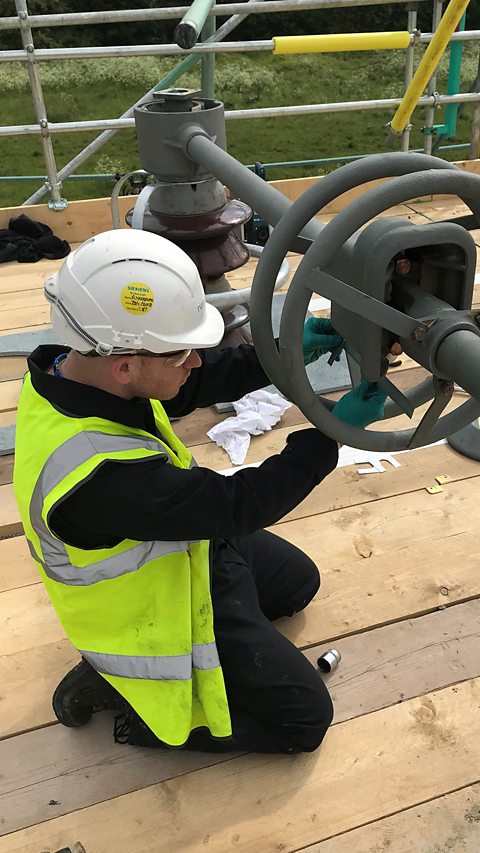
What skills do you use in your job?
I use practical skills on site, and other skills like communication. Often a project will have a large group working together, so you need to be able to communicate to ensure everyoneÔÇÖs safety and that the job is done properly.
You are also quite busy as an apprentice, so you need to be good at time management to stay on top of university and your courses.
How do you feel about doing an apprenticeship instead of going to university?
I spent a lot of time deciding if I wanted to do university or an apprenticeship. It was a big decision to make. I get to earn a competitive salary and I am gaining a degree and qualifications out of it. I am completely debt-free and gaining valuable practical experience. Sometimes, just doing a university course, you miss out on the practical side of things and seeing what it is like to work in the industry.
I donÔÇÖt miss out on the social side of things either. I am part of a cohort [of apprentices]. There is a social element within our group and there are also completely different apprentices in the training centre, so in the evenings we find out what other people are up to.
What skills do you need for the job?
For the programme IÔÇÖm on, you need hands-on practical skills and also a lot of problem-solving skills. A big part of my job involves finding issues, investigating and looking at different solutions and fixes.
Have there been any challenges on your apprenticeship programme?
I think it can be a bit daunting to work at different sites around the country, juggling the work with studying and meeting so many new people, many of whom have been working in this field for a long time and have so much experience. ThereÔÇÖs a lot of learning and being self-motivated is really important. The best thing to do is be yourself, get stuck in and ask questions.


Top tips for others who are not sure if an apprenticeship is for them:
- Research and explore different industries to understand what each offer in terms of qualifications, career progression, skills and development
- During National Apprenticeship Week, there are lots of insight events to find out more and ask questions
- If you find an apprenticeship that interests you, my advice would be to absolutely go for it. An apprenticeship provides a great opportunity to learn from really experienced people and you get to take on more responsibility, developing your own work experience and gaining a qualification
- If you want to get your foot in the door to a long-term career, these programmes are a great way to kickstart your working life.

When Adam completes his apprenticeship and a City and Guilds Level 3 Diploma qualification in electrical power engineering, he will be an electrical engineering technician. This is similar to electrical engineering technician who install, repair and maintain electrical equipment, systems and controls.
What to expect if you want to be an electrical engineering technician
- Electrical engineering technician average salary: £22,000 to £60,000 per year
- Electrical engineering technician typical working hours: 40 to 42 hours per week. You could also work on call as customers demand.
What qualifications do you need to be an electrical engineering technician?
You could get into this role via a university course, a college course, an apprenticeship, or applying directly
This information is a guide and is constantly changing. Please check the website for the latest information and all the qualifications needed. (sources: LMI for All, National Careers Service)
For careers advice in all parts of the UK visit: , , and

Jasmine: apprentice engineer. video
Jasmine is an apprentice engineer on the HS2 rail link.

Amy: Formula 1 engineer
Amy helps develop ways to make racing cars go faster.
